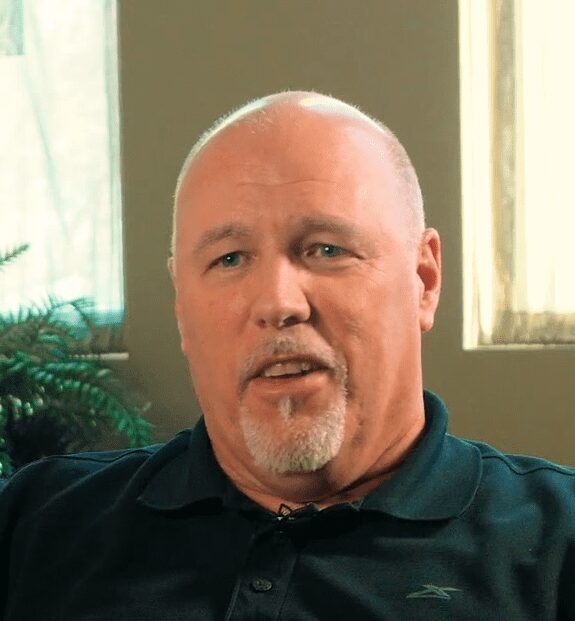3 Ways the Summit is Transforming a Prison in Missouri
Prison in America—the world I go into every day—is very much a good news/bad news story. The upside? America’s incarceration rate has fallen to a two-decade low, thanks to a general decrease in crime and increased sentencing reforms.
The bad news, however, also commands our attention. Compared to other countries, the U.S. incarceration rate is still the world’s highest, with over 2 million people behind bars. I’m not here to judge that. I just want to say we have an amazing opportunity, if we have the courage to dig deeper and take it.
For far too long, prisons have served as warehouses—housing, clothing and feeding humans until they’re sent back into society with a vague hope the experience made them better. Look at the high recidivism rates across the country—the degree to which released offenders re-offend—and you’ll see that this “rehabilitation” effort is a huge failure.
But what if we tried something new?
What if we sought “redemption” for those in prison? What if we showed them that there’s the possibility of hope in the here and now, whether they are doing short time or a life sentence? By giving them something to live for—and think about.
Enter The Global Leadership Summit—and its ability to unlock human potential.
At Southeast Correctional, there’s a lot of human potential in the 1,700 or so offenders with us on any given day. Ten years ago I became involved with the GLS when it was broadcast at a local church. There, I met Dr. John Wade, a member of the church’s congregation, who volunteers teaching inmates at Southeast. In 2015, he suggested introducing the GLS to the prison.
Prayer made me realize that the Summit could be a unique way to reshape prison culture.
I was blown away, because the idea of talking to maximum security offenders about leadership—inside a maximum security prison, no less—just hadn’t occurred to me. I mean, what if they led themselves right out of there—and escaped?
Prayer made me realize that the Summit could be a unique way to reshape prison culture, so we sent a request letter up the chain of command. Our idea was approved in two days, which, if you know anything about how long state government takes to decide anything, is amazing. God definitely had a hand in the approval process.
We hosted the first satellite Leadership Summit in August of 2015, with about 35 specially selected offenders on hand. Participation has grown steadily in the three years since.
The Summit at Southeast is a real-time event aired on a big screen, where I am the emcee in between GLS sessions. After hearing a Summit speaker, the guys meet in smaller breakout groups, led by volunteer facilitators from local the church and the staff at Southeast, to discuss what they’ve learned.
It’s an amazingly broadening experience for men who might otherwise be mortal enemies. I’ve had members of the Bloods and the Crips, two of the biggest rival gangs in the country, side-by-side at a Summit, and had no trouble from them. Talking and laughing with one another, putting their feelings on the table in a way you’d never see on the street—or elsewhere in jail. Sitting in breakout groups with tears running down their faces—just being able to tell their personal stories, maybe for the first time in their lives.
In between annual Summits, we offer follow-up sessions that serve as refreshers about what the inmates have learned, along with classes in everything from substance abuse prevention to anger management.
-
Communication improves.
Stories are what most resonate with the guys—stories of successful people who overcome doubt, pain and hardship to make the most of themselves. How did they do that? A common thread in many Summit-related success stories is successful communication—a person’s ability to articulate thoughts, hopes and plans, at work and at home, in business and among family.
Well, it just so happens that communication is also a huge issue in prison—sometimes a life or death one. There’s communication between guards and inmates, between one offender or group of offenders and another.
Exposure to the Summit has opened up lines of communication in prison.
The ability to relay information successfully is crucial, especially when dealing with guys who want to do all the talking, but not listen. Put a bunch of frustrated felons in close quarters and things can go badly—fast.
Exposure to the Summit has opened up lines of communication in prison, digging deeper among offenders and staff in ways I’d not thought possible. The numbers bear this out.
In 2014, for example, the year before our first Summit, we recorded 576 uses of force by staff—576 times when we had to employ physical force to gain compliance from an offender. In 2018, we recorded 198 such incidents—a record low. Other key indicators also dropped: the number of acts of prison violence, inmate grievances filed against staff and so on.
-
Relationships improve.
Inmates use their Summit learning experiences to improve relationships with their families—and with God. It changes how they think of themselves—not as powerless absentee figures, but as husbands and fathers with a future who can get out, find work, be successful and lead others. Believing in themselves—and in a benevolent higher power—is a huge break from the despair and anger of the past.
Believing in themselves—and in a benevolent higher power—is a huge break from the despair and anger of the past.
We’re already seeing Summit participants released from prison who have made a success of themselves on the outside. I am confident the trend will continue—with a corresponding drop in the recidivism rate.
-
Respect increases.
The message inmates receive though the Summit is clear: Just because they failed and ended up in prison, doesn’t mean that their whole life is a failure. They can learn from that and succeed, but it’s how much they put into the effort that counts. If they are willing to dig deeper, the skills learned at the Summit can carry them a long way from the cell block.
We need to do whatever we can to help them be successful.
Our prison staff plays a role in this transformation. The Leadership Summit has showed us the importance of positive reinforcement, offering thanks or a handshake when one of the inmates has done a good job at work.
That may not sound like much on the outside, but when you’re in an offender’s shoes, it’s not something you expect. The mindset of a convicted felon is that nobody’s going to treat them with much respect. But for our prison staff, the Summit has brought out the importance of expressing thanks, no matter who the target audience is.
The results of prison life are deep and long lasting, with consequences for us all. Because 94% of the prison population will be released one day, they’ll go back into society and into our neighborhoods, maybe even to the house next door. We need to do whatever we can to help them be successful and leave the criminal life behind.
But what about those who never leave prison?
What about those who are serving what is likely to be a life sentence? These people, you might think, cannot be saved.
I’d like to close by telling you about one of them. With white hair and a white goatee, he looked like everybody’s grandpa. The reality is that he was serving a life sentence in the Missouri Department of Corrections.
He was one of our first Summit attendees, who attended every year thereafter—and the experience changed him. “This is something,” he said, “I waited for all my life.”
…there he was, telling others, at one of the worst moments in their lives, that life was worth living.
Not long after, he gave his life to the Lord. Now, instead of just doing life, he was all about living. He became known for teaching GED—high school equivalency classes—and never missed an opportunity to go deeper by talking about what he learned from speakers at The Global Leadership Summit.
We became friends, so it was a great sadness for me last year when he died of a heart attack—still in prison—at the age of 70. After his passing, I can’t tell you how many men came up to me and said: “You know something? That guy changed my life.”
He changed lives because he made it a habit to look out for new inmates—and dig deeper into their lives. I’m not sure how he did it; I guess he’d just pick out someone who looked like he didn’t have a friend in the world. But they had a friend in him.
He’d go up to introduce himself and just start talking, sharing things he learned in the Summit as well as his own personal testimony. Here was a man who could have been angry and bitter, yet there he was, telling others, at one of the worst moments in their lives, that life was worth living.
There are times, I think, when people find themselves in places they never planned to be, doing things they never expected to do. I believe he was one of those people, inspiring vision and igniting transformation along the way. Like Saint Paul, who spent time in prison, yet used his incarceration as an opportunity to write much of the Bible.
I figure God had that kind of plan for this inmate too. He found himself in jail, but, thanks to what he learned through The Global Leadership Summit, he was able to help others who were struggling. Help was a gift he freely gave. And I thank God, the GLS and supporters like you that he was there to give it.
Equip, encourage & inspire global leaders with a gift today
When you give to the Global Leadership Development Fund, your gift inspires and equips Christian leaders, facilitating transformation in some of the world’s most challenging environments.


